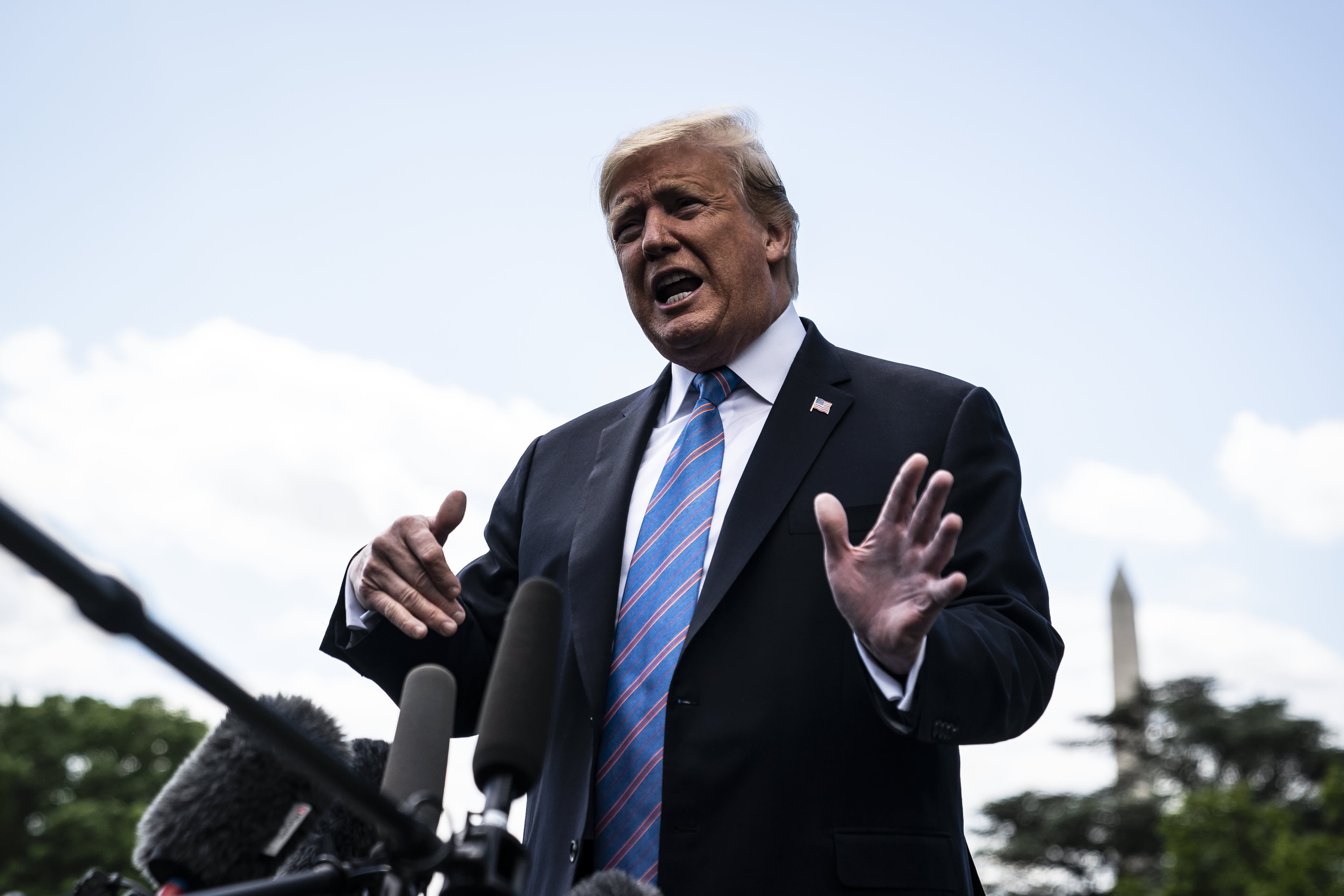Dow rises 100 points, erases 190-point drop as Trump delays auto tariffs - 3 minutes read

Stocks rose on Wednesday on news that President Donald Trump plans to delay the implementation of auto tariffs.
The Dow Jones Industrial Average traded up 101 points after falling as much as 190 points earlier in the session. The S&P 500 gained 0.5% while the Nasdaq Composite rose 1%.
Three sources told CNBC the administration will delay those levies by up to six months. The news, which was first reported by Bloomberg News, sent auto stocks higher. Fiat Chrysler's U.S.-listed shares rose 1.5% while Ford Motor and General Motors gained 1.3% and 0.7%, respectively.
"If you look at today's market action, it does show how sensitive investors have become to trade news," said Jeff Kravetz, regional investment director at U.S. Bank Wealth Management. "What it may do is put equities in a range-bound mode as investors wait on the outcomes of trade tensions."
Equities initially fell after the release of weaker-than-expected economic data stoked fears that the U.S.-China trade war is dragging down global economic growth.
U.S. retail sales fell 0.2% in April, the Commerce Department said Wednesday. Economists polled by Dow Jones expected an increase of 0.2%.
Overnight, data released in China showed industrial production rose by 5.4% in April on a year-over-year basis, notching the slowest pace of growth since May 2003. Economists polled by Refinitiv expected an expansion of 6.5%. Chinese retail sales also disappointed economists.
The disappointing data from both countries comes as trade tensions between China and the U.S. have reignited. Earlier this week, China hiked tariffs on $60 billion worth of U.S. goods. The move came after the U.S. raised levies on $200 billion worth of Chinese imports. The U.S. also raised the possibility of slapping tariffs on an additional $300 billion in goods from China.
Trump tweeted on Tuesday that the U.S. is in a "much better position now than any deal we could have made."
President Donald J. Trump stops to talk to reporters and members of the media as he walks from the Oval Office to Marine One to depart from the South Lawn at the White House on Tuesday, May 14, 2019 in Washington, DC.
Jabin Botsford | The Washington Post | Getty Images
"The escalation of the U.S-China trade war is unequivocally a negative for the growth outlooks for both countries and the global economy," Veneta Dimitrova, senior U.S. economist at Ned Davis Research, wrote in a note. "Tariffs result in higher inflation, increased policy uncertainly, slower capex and employment growth, and weaker productivity growth."
"The longer tariffs stay in place or rise in size and scope, the greater the downside risk to the U.S. growth outlook," Dimitrova said.
The rising trade fears sent equities reeling this month. The Dow and S&P 500 are down 4.6% and 4.2%, respectively, while the Nasdaq has fallen 4.9%.
Earlier this year, the S&P 500 and Nasdaq reached record highs in part because both China and the U.S. indicated progress was being made on the trade front.
But the increasing trade fears have made the market's short-term outlook "unpredictable," according to Craig Birk, chief investment officer at Personal Capital.
"You have to accept that it's going to be a coin-toss if you're worried about the next day or week. It's a negotiation," Birk said. "There will be positioning and there will be developments, some will be positive and some will be negative. We'll continue to have more choppiness."
—CNBC's Silvia Amaro contributed to this report.